HOME | ABOUT US | MEDIA KIT | CONTACT US | INQUIRE
HOME | ABOUT US | MEDIA KIT | CONTACT US | INQUIRE
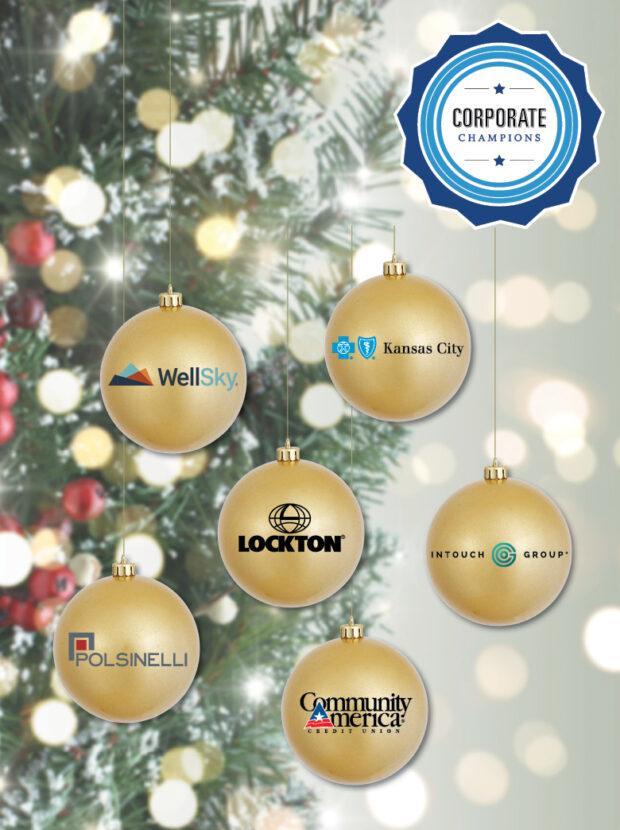
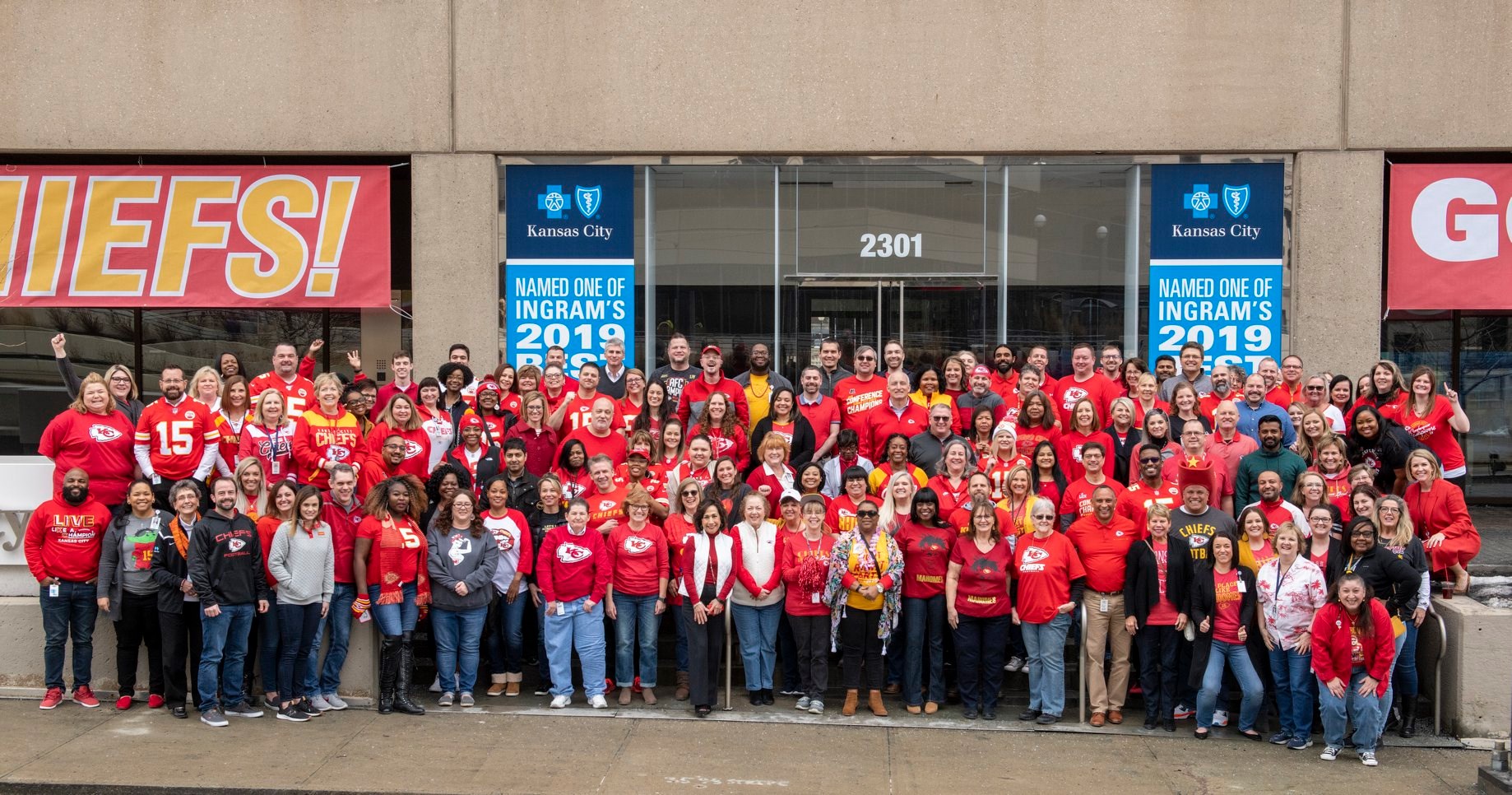
CHAMPION GIVERS: Whether through support for the hometown team or support for health-care interests of clients, Blue KC plays at a high level in Kansas City.
Blue KC isn’t just the region’s largest health-insurance provider: It’s a civic and philanthropic engine on a scale matched by few corporate citizens in this region, and never more so than in the past year. You want metrics to back that up? Start with 2019, when the company got behind more than 300 area non-profits in a broad show of support: Employees serving on multiple non-profit boards, volunteering thousands of hours to favorite charitable causes, and launching a new platform, Blue KC Cares, the annual employee giving campaign, which directed funding to 130 different regional non-profits. The new year wasn’t very old when Blue KC committed to do even more in the face of an emerging global pandemic. In March, it announced specific steps to ensure members’ access to COVID-19 testing, medications and virtual care, then waived cost-sharing for COVID-19 testing, along with early medication 30-day refill limits. It expanded access to in-network telehealth for all covered services and waived member cost-sharing. And it provided financial support for telehealth for the uninsured and under-insured in the Kansas City area and for behavioral telehealth support for front-line health-care workers. Then it backed all of that up with nearly $18 million in financial relief to support employer groups, members and providers experiencing unexpected financial hardships due to the pandemic. The COVID-fighting efforts included $200,000 to the Kansas City Regional COVID-19 Response and Recovery Fund, a match on employees donations to Harvesters to raise $22,000 and provide more than 65,000 meals. Its Live Blue Kitchen + Cafe donated 28,000 prepared meals and bottled water to local organizations, including Ronald McDonald House, the Kansas City and Overland Park police departments, Ivanhoe Community and Saint Luke’s Hospital. The Café also donated 2,200 large fresh produce and dairy boxes to Prep KC and Shelter KC to distribute to impoverished communities through House of Hope KC. “With a long history of giving in Kansas City, Blue KC has always been committed to giving back and supporting the local community,” says CEO Erin Stucky. “During the current health and economic crisis, we recognized a need to do even more to assist non-profits and COVID-19 response efforts.”
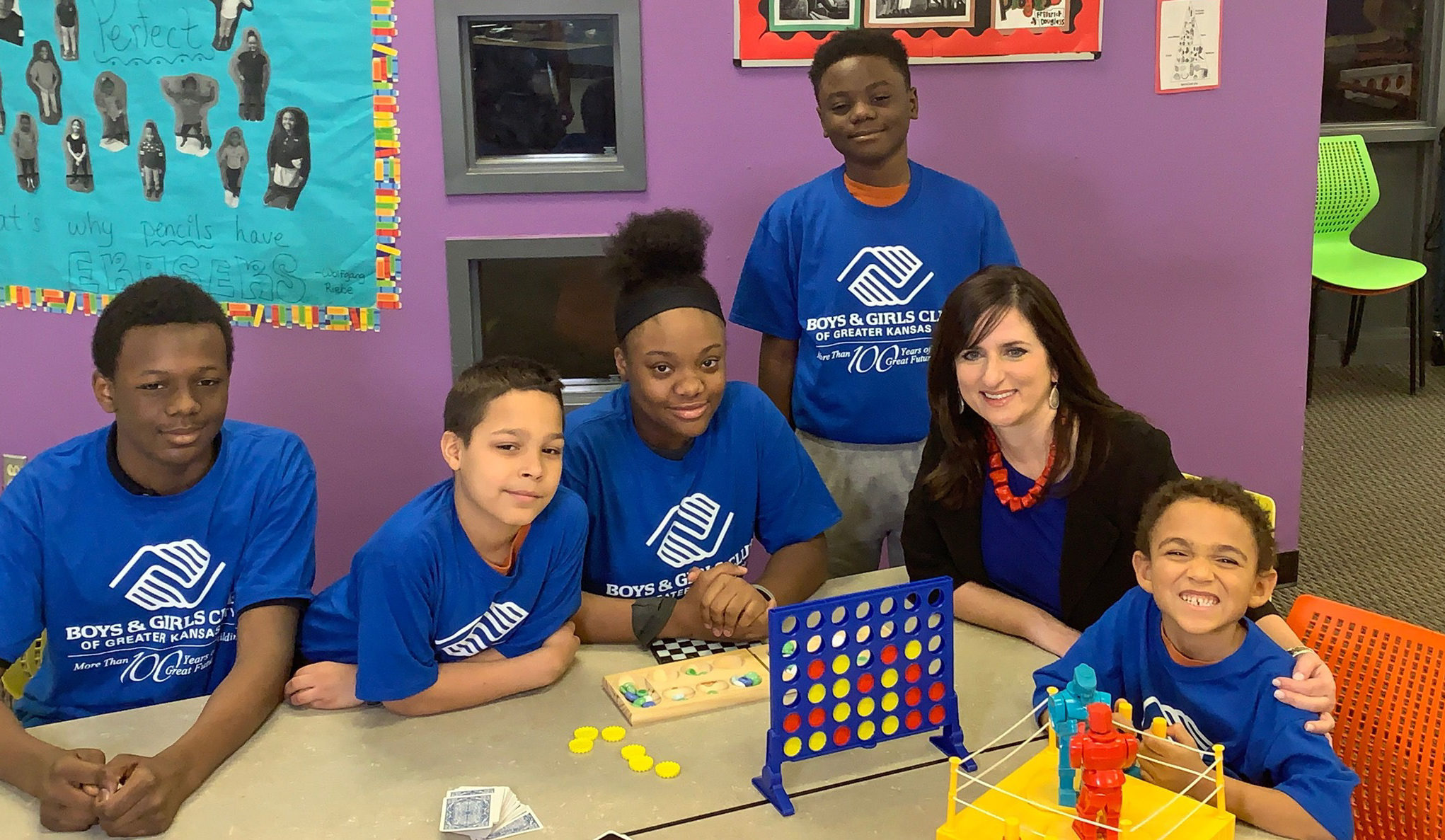
LEADING FROM THE TOP: CEO Lisa Ginter and some of her beneficiaries at Boys & Girls Clubs of Greater Kansas City.
The numbers—$2.35 billion in loans, $3.7 billion in total assets—are big at CommunityAmerica Credit Union. So is the giving spirit. And CEO Lisa Ginter rightfully exudes executive pride in reviewing them: Last year, she says, “our volunteers donated more than 5,130 total hours across 160 organizations. We also donated more than $1 million to local charities.” That’s a big footprint for the biggest credit union, by far, in the Kansas City market. And it’s a reflection of a strategic approach to giving that focuses on four key philanthropic pillars—financial literacy and stability; education; strengthening communities; and health and well-being. Here’s how those elements fit together: Financial literacy and stability is a pathway to moving up from the ranks of the needy. CACU engages with Junior Achievement of Kansas to help people seize command of their financial futures, and works to keep them on a success path by partnering with need-based organizations like Catholic Charities of Kansas City-St. Joseph, Community Services League, Women’s Employment Network, Jewish Family Services, Sheffield Place, and the Family Conservancy. Education is considered a key determinant for financial successful, so CACU supports schools with programs advancing reading literacy, the primary factor to learning success. Among the efforts to strengthening communities, Ginter co-chaired the 2020 Kids Night Out Gala for the Boys & Girls Clubs of Greater Kansas City, with another record-setting effort of more than $2 million raised. The communities we serve shape who we are, she says, which is why giving is directed at youth development, access to food and emergency services, and the arts. Taking on a special role during the 2020 pandemic, the health pillar yielded immediate gifts to Harvesters and the KC COVID-19 Response and Recovery Fund to help local non-profits meet the escalating demand for services. “We can’t put into words how much we love supporting the causes doing important work in our backyard,” says Ginter, who knows the market and the need by virtue of being a Kansas City-area product. “Our community is only as good as our investment into it, and we’re proud to have made many big moments possible.”
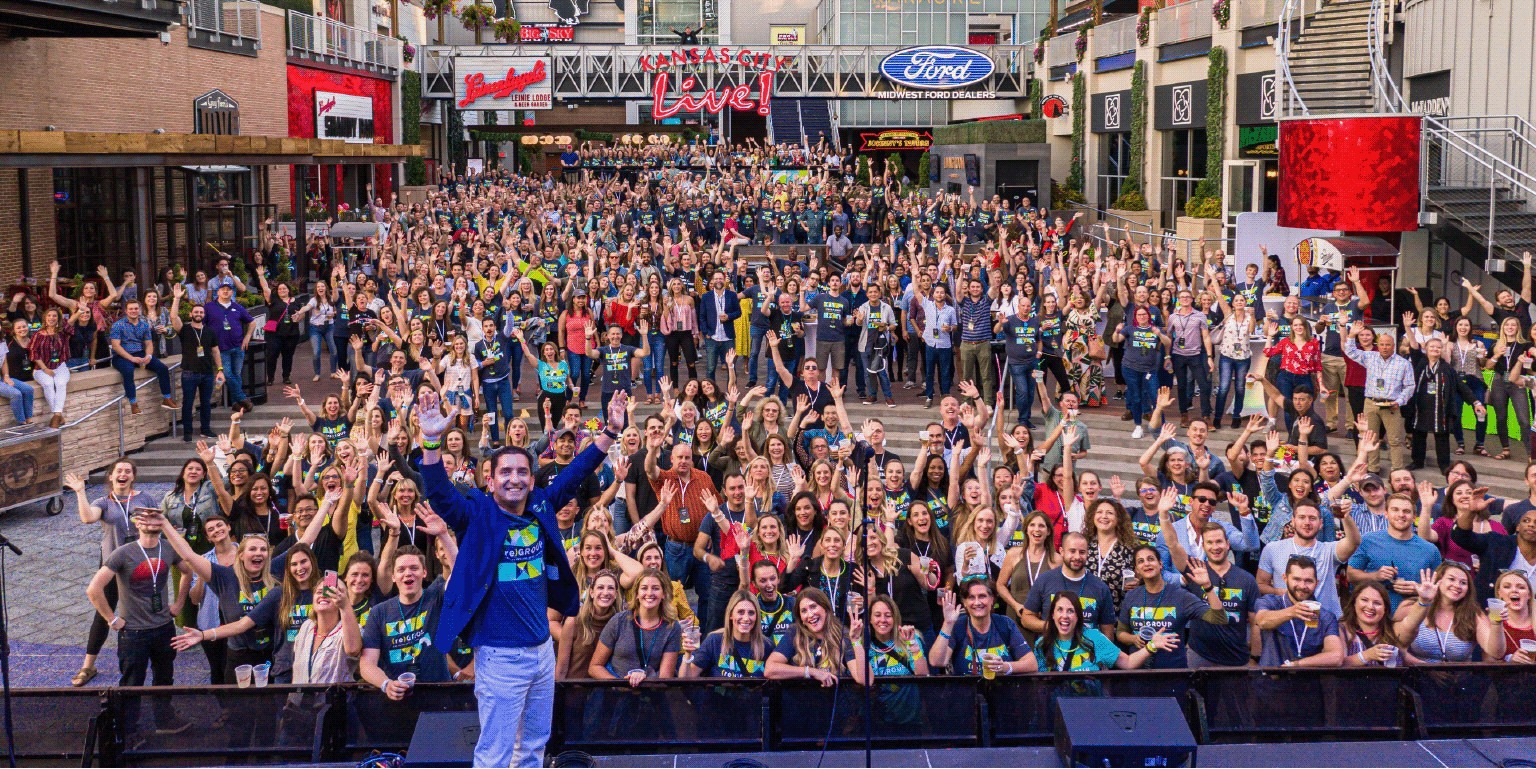
MISSION-FOCUSED: Faruk Capan, front, has built a large team and a sense of purpose.
Wendy Blackburn joined Intouch Solution four years after its 1999 founding by Faruk Capan, but by then it had already rocketed into high-growth space. So she’s been along for most of the ride as the pharmaceutical digital marketing agency morphed into a holding company with seven affiliates and brands. The scale is different, but what hasn’t changed for Intouch is the depth of commitment Capan established for corporate philanthropy. One of the keys to nurturing that through the first 20 years, Blackburn says, is getting in front of the need. Given its growth and reach across six locations, “it would be easy for our culture and our philanthropic efforts to become fragmented,” she says. “I believe the key is to have a thoughtful approach and a plan up front instead of just reacting to each opportunity that comes your way.” That meant organizing to be centralized on large-scale efforts and localized for others. “For example, each location has its own philanthropy budget to support local non-profits that are important to them,” Blackburn says. “Client-centric affiliate teams—which can cross loca-tions but are united by work in a specific disease category, such as cancer—can get involved with those non-profits related to the health condition.” A major beneficiary locally is Heart to Heart International, which inspired the Intouch team, she says, by what it was doing to respond to the coronavirus crisis, both locally and nationally. “We were impressed with the idea of their Infection Prevention and Control training program, the importance of the program to those organizations in need, its scalability, and the fact that it saves lives,” says Blackburn, who also sits on the non-profit’s board. Intouch also launched an internal giving initiative called Intouch for Justice, aimed at achieving racial justice, by which it matches donations from each employee, up to $100, to the NAACP Legal Defense and Education Fund, The Inno-cence Project and the Equal Justice Initiative. So far, that has yielded more than $18,000. The firm prioritizes philanthropic activities throughout each year and routinely supports about 40 other causes, many related to the health-care themes close to its clients’ work in life sciences: Make-A-Wish Missouri & Kansas, the KC Pet Project, Ronald McDonald House Charities, Always & Furever Midwest Animal Sanctuary, CHD Babies, St. Baldrick’s Foundation, Almost Home Kids and more. “In the end,” Blackburn says, “we are all united by our passion for solving health care’s greatest challenges, and our purpose statement, ‘No Challenge Too Big to Cure,’ keeps us aligned and continually guides our philanthropic giving.”
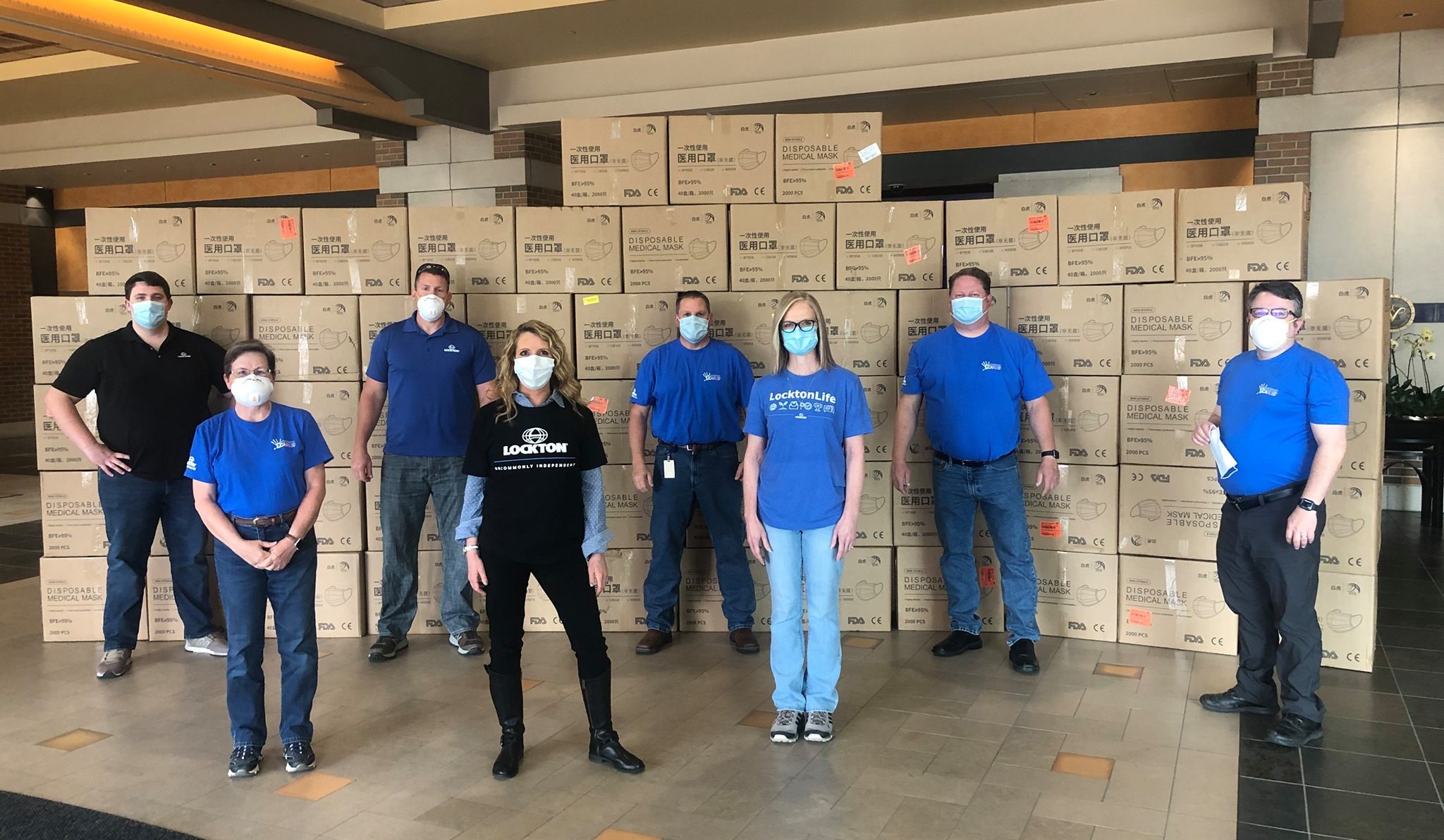 LOCKTON
LOCKTONHow do you get from a one-man office to the world’s largest private, independent insurance brokerage? Focus. The late Jack Lockton built that into his Kansas City company at the outset, and his corporate heirs continue the commitment today around the world. But it’s not all business. “Every decision we make at Lockton revolves around our three pillars: our clients, our associates and our communities. These pillars inform our actions not only in our business, but in the non-profits we choose to support,” says Joe Agnello, CEO of the firm’s Founders Series. “Simply put, we care deeply about the causes that are important to our Associates and our clients.” Few companies in Kansas City possess the reach—or acumen—to serve at the Lockton level. Each year, Lockton supports more than 400 organizations nationally through sponsorships, board membership, fundraising and volunteerism, Agnello says. “This year, as a global company, we expanded our philanthropic efforts to those on the front lines of COVID-19 relief and families impacted by the virus by donating over $1 million to more than 130 organizations around the globe,” he says. In its hometown, he said, a favorite effort is to ask Kansas City employees to identify its top charities, a comparatively small group of organizations with deep ties to employees and their families. In 2020, these included Adopt-A-Soldier, Children’s Mercy, Cystic Fibrosis, Huntington’s Disease Society of America, March of Dimes, MS Society, Pancreatic Cancer Action Network, and The Salvation Army. “We also continued our long-standing support of United Way in 2020, donating more than $770,000 to the organization in the Kansas City, Michigan, Minneapolis and Omaha areas,” Agnello says. “And finally, we introduced Lockton’s Equity and Opportunity Impact Fund, which supports causes and organizations that provide funding to communities of color and those that fight for social injustice.” Each limb and leaf on that philanthropic tree exists today because of a seed Jack Lockton planted in 1966 “and his belief in supporting the clients and communities that supported the organization,” Agnello says. “His legacy is ingrained in our culture and his passion for serving the communities that we do business in is the compass that guides our leadership today. In fact, you’re likely to see the most senior leaders at Lockton participating in the various volunteer activities we host throughout the year. Like Jack Lockton, they lead by example, signaling to all associates the importance of giving back.”
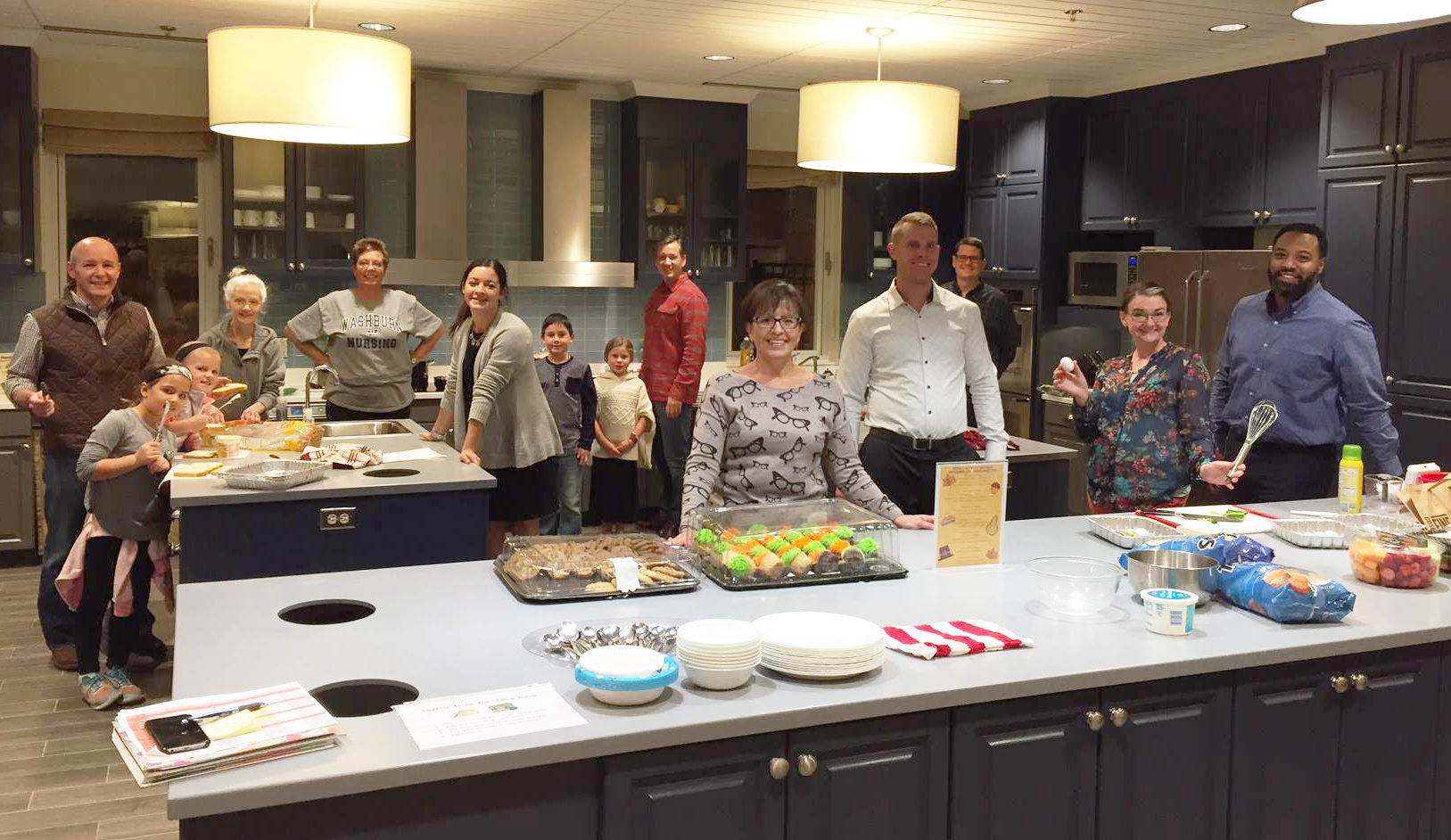
NOURISHING COMMUNITIES: Whether dishing up eats at the Ronald McDonald House or providing free legal services, Polsinelli’s staff lives the firm’s commitment to service.
At Polsinelli, the leadership has long been committed to the communities it serves—21 of them now, coast to coast—and understands that success is dependent on the strength of those communities. Nothing about a pandemic year has blurred that view, and employees remain encouraged to participate in a volunteer outreach program that fosters opportunities to work side-by-side with their peers and invest time and service in each city. Firm-wide, Polsinelli dedicated 18,021 hours of pro bono work so far in 2020, with nearly 400 attorneys from 23 offices tackling 641 pro bono matters. Most of its offices, in fact, have at least one local pro bono liaison that works with a Pro Bono Committee and local legal-service organizations to address the needs of that particular community. Closer to home, the charitable and civic organizations supported by the firm’s headquarters office include Kansas City’s Civic Council, Chamber of Commerce and the Area Development Council, the United Way, Treads & Threads (the main fund-raiser for the University of Kansas Hospital), the Urban Neighborhood Initiative and the Kansas City Pet Project. “From the day the firm was founded, beginning with our namesake, Jim Polsinelli, providing civic leadership and philanthropic support has been a part of our culture,” say Kansas City office managing partners Mary Jane Judy and Greg Kratofil. “We don’t just write checks, we roll up our sleeves and get to work in support of nonprofit organizations that are meeting critical needs in our community.” How? By focusing on ways the firm can leverage its national footprint to create a larger impact in several areas including civil rights, immigration/asylum, housing/urban revitalization and economic development, corporate governance and non-profits and families/children and veterans, among others. “Civic and charitable support is vitally important to our firm’s culture and incredibly meaningful and rewarding for our attorneys and employees,” Judy and Kratofil say. “Giving back and leading community initiatives continues to be a top priority for Polsinelli—to be a success at Polsinelli you have to do more than just sit behind your desk and bill hours.” A large share of that pro bono work focuses on immigration and family reunification, two areas, the leaders say, that reflect the interests of the firm’s lawyers.
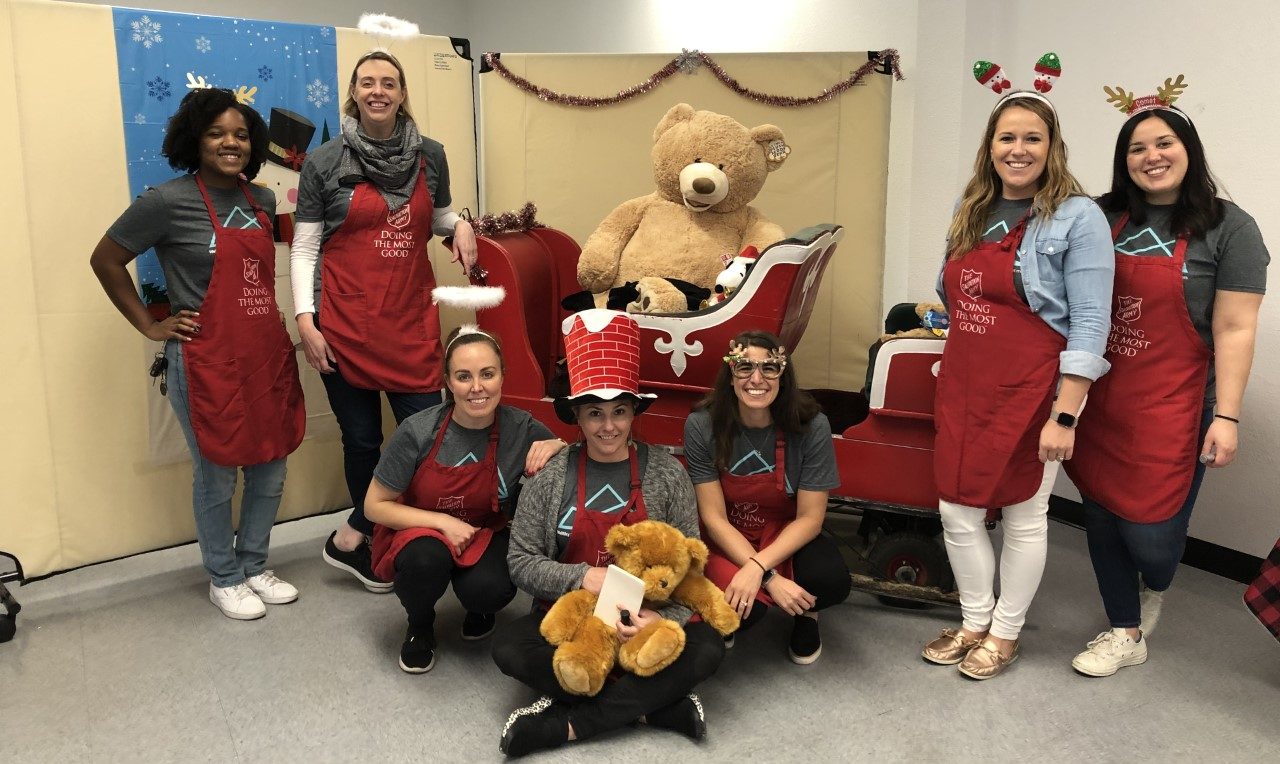 WELLSKY
WELLSKYAs a health-care technology company, says CEO Bill Miller, “WellSky is focused on advancing wellness for people across the globe.” Never has that been more relevant than it’s been during a year of global epidemic. “We of course empower wellness through our technology, and we also understand that there are many ways to build healthier communities,” Miller says. Thus, corporate philanthropy “is an integral part of everything we do at WellSky. It’s built into our teammate benefits and into our everyday work,” he says. One bright example of that is with its volunteer time-off program, wherein each employee is granted 16 hours of paid time to spend supporting causes closest to their hearts, including Meals on Wheels, food banks, local animal shelters, and more. The constant search to find ways to better support clients and communities, he says, led to creation of the WellSky Foundation, a nonprofit dedicated to improving quality of life for vulnerable populations by removing social barriers to health, recovery, and lasting wellness. It focuses on four key social determinants to health—housing, food insecurity, transportation, and isolation—and in its short history has already gifted more than $315,000 to a long list of local, regional, and national organizations, including Midland Care Connection, Hephzibah Children’s Association, Mobile Loaves & Fishes, Black Women’s Health Imperative and others. Amid the pandemic, it donated masks to resource-strained health-care workers. “When COVID-19 took hold in the U.S. in March, WellSky was uniquely positioned to respond to the crisis and to support health workers and vulnerable populations,” Miller says. “The ongoing crisis has further reinforced the need for WellSky and our work. Our teammates are always willing to go above and beyond to help our clients and communities.” Successful corporate giving, Miller says, stems from “a culture of caring that starts with our teammates, extends to our clients, and ultimately results in better care for millions of people.
Our mission is realizing care’s potential. And that means creating a world where care providers can do good for people and well in business.”